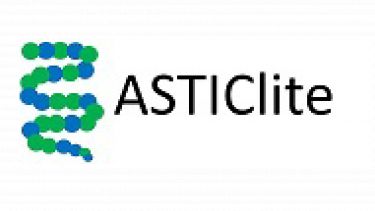ASTIClite trial
Autologous Stem cell Transplantation In refractory Crohn’s disease – Low Intensity Therapy Evaluation
The ASTIClite trial whether testing if autologous haematopoietic stem cell transplant is an effective treatment for Crohn’s disease in patients who have not responded to current licensed treatments.
The Challenges
Crohn’s disease occurs when the gut immune system reacts to its bacterial content, causing inflammation in the intestine. In some cases, despite trying many standard treatments for Crohn’s disease, patients may not find an effective treatment, resulting in debilitating symptoms, poor quality of life, and the possibility of operations (or further operations) which can result in a stoma. Previous research has suggested that in some cases, Crohn’s disease that is resistant to standard treatments could be improved with stem cell transplantation (HSCT). This is where a patient’s own immune stem cells are returned to them after their current immune system is wiped out by chemotherapy. Previous research had shown that patients with Crohn’s disease undergoing HSCT experienced a high number of serious infections which was thought to be related to the chemotherapy doses.
The ASTIClite trial aimed to test HSCT with low dose chemotherapy, to investigate whether this could be a safe and effective treatment for patients with Crohn’s disease that has not responded to previous treatments. ASTIClite also looked at the mechanisms by which HSCT works.
The Research
ASTIClite was a randomised controlled trial, which aimed to recruit 99 patients with treatment resistant Crohn’s disease, across 8 UK NHS centres. Patients were followed up every few weeks, and at 48 weeks, we assessed whether HSCT was more likely to lead to healing of intestinal inflammation than standard care. Some patients experienced severe side effects, and the trial was closed early after 23 patients were recruited. Some trial visits and procedures could not take place due to the coronavirus pandemic.
The Results
- 23 patients took part in the ASTIClite study
- 13 patients were randomised to receive stem cell transplant (HSCT); 10 were randomised to usual care
- At 48 weeks, there were 7 participants in the HSCT group, and 6 participants in the usual care group who remained in the trial and had week 48 colonoscopy data available
- 3 of the 7 participants who received HSCT had absence of ulceration, observed through colonoscopy; 0 of 6 participants in the usual care group had absence of ulceration
- 3/6 HSCT patients had disease remission, and 0/3 patients in the usual care group. Not all patients had fully scored colonoscopies available in order to calculate this
- All patients in the HSCT group experienced at least one side effect (38 serious side effects in total), including two patients who died. In the usual care group 4/10 patients experienced adverse events (16 serious adverse events in total).
The Impact
Although HSCT using the ASTIClite regimen reduced Crohn’s disease activity in some patients, the numbers of serious and unexpected side effects mean that this treatment plan would be unsuitable for future clinical use.
The Team
- Prof James Lindsay
- Prof John Snowden
- Dr Daniel Hind
- Diana Papaioannou
- Lizzie Swaby
- Hannah Berrntsson
- Heather Dakin
- Mike Bradburn
- Ellen Lee
- Amanda Loban,
- Kirsty Pemberton
- Chris Turtle
- Emily Turton
Funder
This project is funded by the Efficacy and Mechanism Evaluation (EME) Programme, an MRC and NIHR partnership (project number 15/178/09). The views expressed in this publication are those of the author(s) and not necessarily those of the MRC, NHS, NIHR or the Department of Health.
Sponsor
Bart’s Health NHS Foundation Trust
More information
- ISRCTN - ASTIClite RCT
- ISRCTN - ASTIClite EBMT follow up study
- NIHR EME
- Prospect (login access required)
- Scram (login access required)
In the Media
Downloads
- ASTiClite Protocol v7.1 (12 July 2019) (PDF, 1.5MB)

